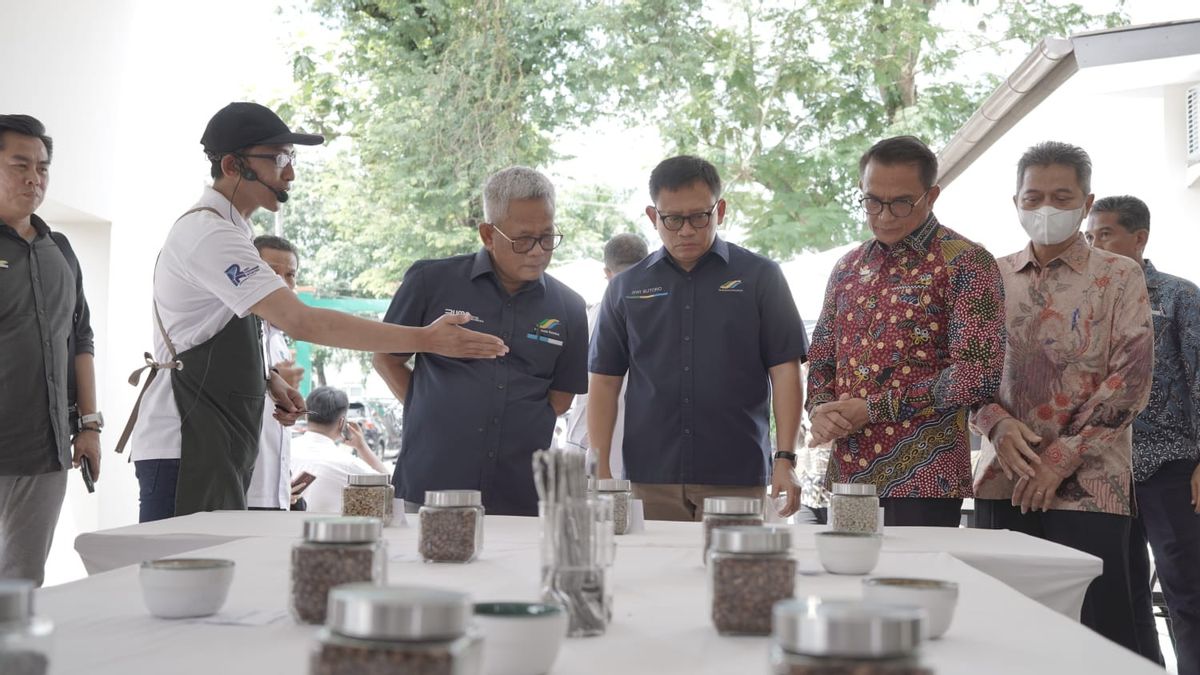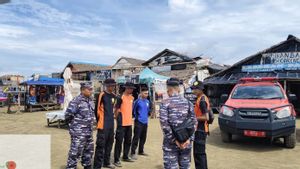JAKARTA - Holding Perkebunan Nusantara PTPN III (Persero) through its subsidiary, PT Research Perkebunan Nusantara (PT RPN) and the work unit of the Palm Oil Palm Oil Center (PPKS), have opened two learning centers, namely Oil Palm Education Center (OPEC) and Coffee Cocoa Learning Center (CCLC) in the Oil Palm Palm Science Techno Park (OPSTP) Medan, North Sumatra.
With the addition of these two educational facilities, OPSTP is expected to play a more tangible role in the dissemination of information regarding IPTEK and community empowerment, through the palm oil-based technology business incubation program.
President Director of Holding Perkebunan Nusantara PTPN III (Persero) Mohammad Abdul Ghani said, as the largest palm oil producer in the world, Indonesia should continue to strengthen the upstream and downstream sectors of the palm oil industry with various innovations and breakthroughs. "New innovations and breakthroughs are needed so that the palm oil industry can continue to be sustainable and beneficial for all levels of society," he said in Jakarta, Thursday (17/11/2022).
Over time, continued Abdul Ghani, the OPSTP which was inaugurated in 2017, continues to be developed. In OPEC, there are several facilities including a fairly complete mini-scale factory from CPO, red palm oil, solid cooking oil, margarine, and hydrogenation process for the production of Cocoa Butter Subtitute (CBS),'' he explained. In addition, said Abdul Ghani, OPEC is also equipped with a brown and battery production house. Facilities within OPEC can be used by tenants/SMEs fostered by OPSTP, the general public, and of course as a learning medium for students and students.
"OPEC is expected to increase the synergy of the Academic-Business-Government and Community (ABGC), so that the sustainability of the palm oil industry and welfare for all levels of society will increase," added Abdul Ghani.
At the same location, PPKS has also built a Coffee Cocoa Learning Center (CCLC). This facility is a tangible form of incubation technology synergy across research centers (Puslit) under PT RPN. This CCLC is the result of collaboration between PPKS and Pulit Kopi and Kakao Indonesia (PPKKI)," said Abdul Ghani.
Head of the Palm Oil Research Center (PPKS), Edwin S. Lubis, said that CCLC is expected to be a benchmark for expanding the communication space for science and technology in the fields of palm oil, coffee, and cocoa in northern Sumatra and its surroundings. CCLC was established in Medan because it is close to the center of Arabica coffee producing in Indonesia. In addition, North Sumatra is also a very good location for cocoa development in Indonesia, because its agroclumitting conditions are good enough to support the growth and production of this plant," said Edwin.
Edwin is committed that CCLC will provide better access for coffee and cocoa stakeholders to the science and technology that has been produced by PPKKI which has been quite difficult to access because of the location of PPKKI located east of Java Island. CC is expected to become an incubation room for the downstream coffee and cocoa business," he said.
Siring with the PMO Kopi Nusantara program under the Ministry of SOEs, the existence of CCLC will strengthen the synergy between farmers, research and learning institutions, as well as increasingly flexible off takers. "In the end, CCLC is expected to strengthen the economic value of these commodities on a national scale," said Edwin.
Edwin hopes that through the inauguration of the two latest OPSTP facilities, similar collaborations and synergies in PTPN Group and other institutions will continue to grow in the future. Collaboration and synergy like this need to be maintained and improved for the advancement of the palm oil industry, coffee, cocoa and other Indonesian plantation commodities," he said.
The English, Chinese, Japanese, Arabic, and French versions are automatically generated by the AI. So there may still be inaccuracies in translating, please always see Indonesian as our main language. (system supported by DigitalSiber.id)










